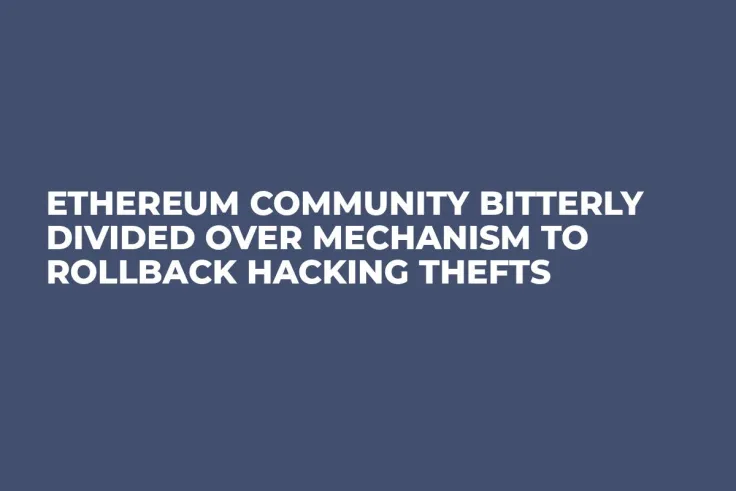
The question of recovering lost Ether has once again come to the forefront, presenting great challenges to the Ethereum community. In the wake of last year’s Parity wallet hack, which cost users 513,000 Ether, developers are considering a proposal to allow such lost funds to be recovered. Ethereum Improvement Proposal (EIP) 867 proposes a mechanism by which the Ethereum community can implement a “state change” which essentially rolls back the hack and restores funds to their original owners.
What is it?
EIP 867 can be viewed (and commented upon) at Github. The “simple summary” explains the purpose of the EIP:
Provide a standardized format for Ethereum Recovery Proposals (ERPs), which relate to recovery of certain classes of lost funds. This EIP does not advocate for or against the acceptance of any particular recovery proposals.
Thus, developers are technically just laying out a procedure that would potentially allow lost funds to be recovered. They are not necessarily advocating for the use of any actual ERPs.
TheDAO
If this all sounds familiar, it’s because we’ve been here before. In 2016, a whopping 3.6 mln Ether was stolen from one of the earliest ICOs, called “TheDAO.” At the time, Ethereum’s developers and community had to decide how to handle the crisis. Not only was this a staggering amount of money, such a large sum of Ether would give the hacker disproportionate control over Ethereum’s network once it switched to Proof of Stake (PoS).
The Ethereum community essentially had to decide among a few possible outcomes. They could roll back the hack and restore funds to the original owners, thereby creating a precedent and demonstrating that Ethereum’s Blockchain was not immutable. Other options included either abandoning Proof of Stake plans or accepting that the hacker would have significant power once the change to PoS was made.
Ultimately, Ethereum’s miners chose the first option, and the immutability of Ethereum’s Blockchain was destroyed. Yet advocates of the rollback argued that the network was saved, and that it would only be a one-time occurrence, anyway.
The problem with precedent-setting cases is that, of course, they set precedents.
Controversy
Many community members are still arguing that the rollback of TheDAO hack was a one-off action and should never be repeated. Those who suffered from the Parity attack, including several ICOs, want to know why some hack victims should be reimbursed (from TheDAO hack) while they remain without their funds. They argue that the precedent for rollbacks has already been set. As the saying goes, “what’s good for the goose is good for the gander.”
 Vladislav Sopov
Vladislav Sopov Dan Burgin
Dan Burgin